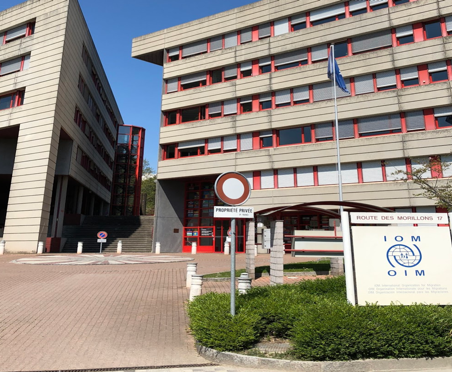The Federal Government and the International Organisation for Migration (IOM), has facilitated the repatriation of 147 irregular Nigerian migrants, who were in Libya, back to Nigeria even as it remains committed to tackling illegal migration.
This was revealed in a statement by Amb. Kabiru Musa, the Charge d’Affaires En Titre at the Nigerian Mission in Libya, on the same day.
According to Musa, the returnees left Tripoli International Airport on Tuesday via the chartered flight UZ 189, with an expected arrival at Murtala Mohammed International Airport, Lagos, later that evening.
What he said
Amb. Kabiru Musa announced the successful evacuation of stranded Nigerian migrants from Libya, as part of the Federal Government and IOM’s efforts, highlighting the ongoing commitment to repatriate Nigerians willing to return under the IOM’s program and the positive impact of these regular repatriations on national development.
- “Under the continuous evacuation exercise of the Federal Government, which is supported by the IOM in Libya, We successfully evacuated another batch of 147 irregular Nigerian migrants who were stranded in Libya.
- “The evacuees included 78 males, 55 females, 13 children, and one infant. They departed Libya successfully and are expected to arrive at Murtala Mohammed International Airport in Lagos, where they will be received by relevant officials.
- “We would continue to evacuate stranded Nigerians who have expressed willingness to return to Nigeria under the IOM’s Voluntary Humanitarian Repatriation (VHR) programme, in line with the’renewed hope’ agenda of the present administration to ensure all citizens have a better life.
- “We are also pleased with the regular repatriation exercise, which shows that a lot of Nigerians are willing to return home to contribute to the nation’s development,” Musa said.
Musa expressed appreciation to the Libyan authorities, who have, at all times, supported successful exercises.
IOM’s stance on irregular migration
Earlier Nairametrics reported that The Federal Government, in partnership with the International Organization for Migration (IOM), facilitated the return of 281 Nigerians who were stranded and detained in various Libyan camps.
The number of evacuees was 159 in number which comprised of Nigerians freed from detention facilities in Libya, alongside an additional 122 being Nigerians stranded in the country.
This reflects IOM’s commitment to curb irregular migration.
Although the 2030 Agenda for Sustainable Development acknowledges migration as a significant force for sustainable development, benefiting both migrants and their communities through skills enhancement, labor force strengthening, investment, cultural diversity, and the transfer of skills and financial resources to their countries of origin, migration can be abused leading to irregular migration which has negative effects such as:
- Irregular migration exposes migrants to dangers like perilous journeys and violence.
- While many migrants survive the crossing, they often lose critical access to their identities, disconnecting them from state benefits and protections such as education, healthcare, and legal accountability.
- Governments in emerging economies tend to focus on controlling migration status rather than territory, leading irregular migrants to seek informal economies and exacerbating inequality.
- Migrants in the informal economy, increases their vulnerability to exploitation and contributing to the erosion of state legitimacy.
- Without proper identity management, migrants, particularly children, face lifelong obstacles and vulnerabilities, underscoring the need for improved policies to ensure migrants can identify themselves to the state and secure their human rights.
As outlined in the Global Compact for Safe, Orderly and Regular Migration, migration requires a comprehensive approach beyond a single policy sector.

